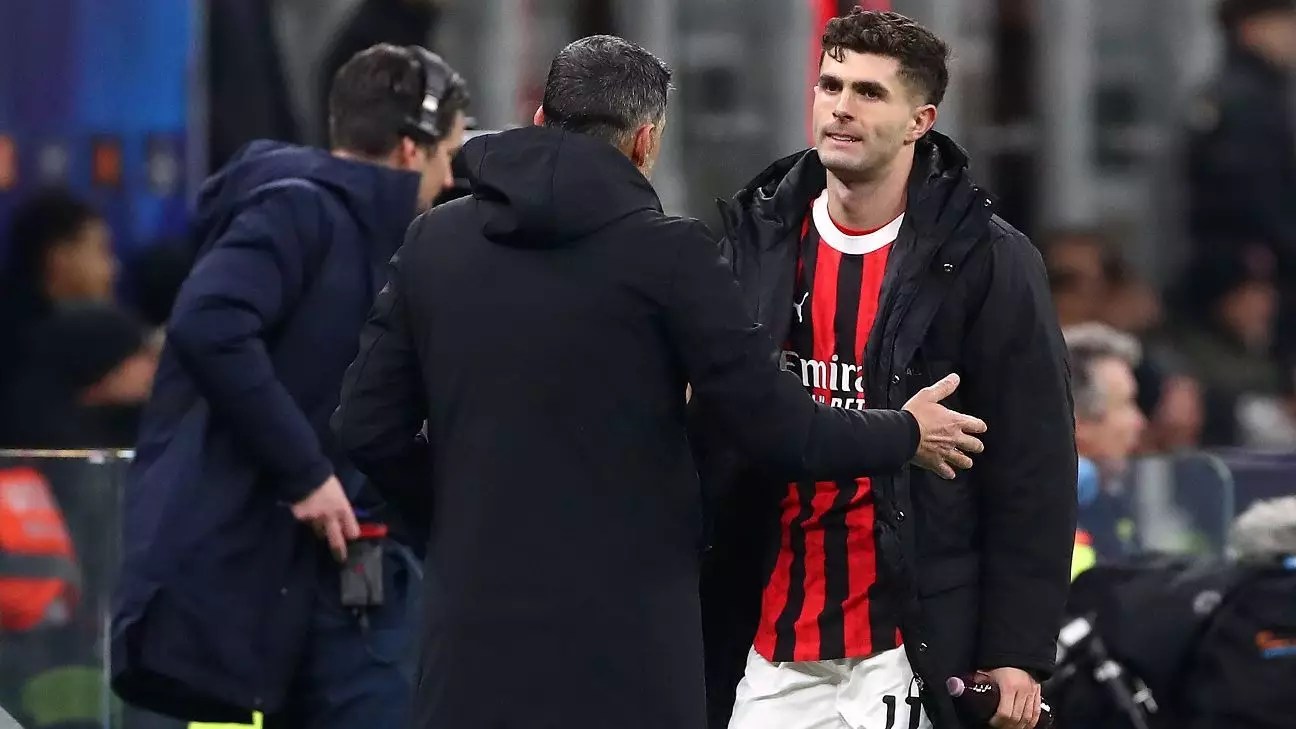In the world of professional sports, where emotions run high and performance expectations are immense, rumors can take a life of their own. Recently, Christian Pulisic, the American forward for AC Milan, found himself at the center of speculation suggesting tension with the club’s head coach, Sérgio Conceição. Reports circulated that after a disappointing exit from the UEFA Champions League, Pulisic and teammate Youssouf Fofana had become discontented with the manager’s tactics. Claims emerged that Pulisic might even request a transfer if Conceição remained in charge. However, both Pulisic and multiple sources within the club have vehemently denied these allegations, emphasizing the importance of unity and focus amidst external distractions.
The Facts vs. Fiction
Pulisic took to social media to address the claims directly, firmly asserting that he has never had a dispute with Conceição and expressing his commitment to the club. “Reading these lies is unacceptable, but let’s all continue to remain united and fight together on the pitch,” he stated. This assertion highlights a broader issue within the media landscape, where the thirst for sensational stories can overshadow the actual dynamics within a team. It is crucial for athletes to manage their narratives, and Pulisic’s immediate response serves as an example of addressing misinformation head-on.
Pulisic’s performance this season has been commendable, making contributions that place him among the top players in terms of goal involvement for AC Milan. Ironically, in a controversial game against Feyenoord, Pulisic was substituted after an hour, despite being a key contributor. This decision raised eyebrows, but, as indicated by various sources, does not correlate with any fallout between the player and the coach. Rather, it appears to be part of the strategic choices made by Conceição as he aims to optimize the team’s balance and strategy on the pitch.
AC Milan has faced its fair share of challenges this season, battling underperformance and managerial changes. The club dismissed Paulo Fonseca mid-season, citing a lack of progress while hovering mid-table in Serie A. Enter Sérgio Conceição, who almost immediately reinvigorated the squad, leading them to a Supercoppa victory against rivals Inter Milan. However, the journey since then has been characterized by inconsistent performances, as they currently sit seventh in the league, having to navigate a tough race for one of the coveted Champions League qualification spots.
In the face of these challenges, Pulisic’s insistence on team unity is crucial. Success in football is rarely a solo endeavor, and the sentiments expressed by players can greatly affect team morale. The story of athletes needing to rally around a common goal is not just a sports narrative; it reflects a broader reality that transcends the pitch. The struggles faced by AC Milan and the importance of teamwork underscore the necessity for players to remain cohesive, especially during tumultuous times.
Leadership plays a pivotal role in guiding teams through adversity. While the media may focus on individual player dynamics, the relationship between players and coaching staff is also vital. Reports about potential conflicts often stem from misunderstandings or miscommunications and can neglect the broader context of a team’s culture. In this case, both Pulisic and Conceição may have differing views on tactics, but this is not unusual in professional sports. Open communication can lead to discovering common ground, essential for achieving shared objectives.
Pulisic’s expression of loyalty and desire to continue with AC Milan could be interpreted not only as a personal testament but also as a broader message of stability for fans and teammates alike. By emphasizing unity and a shared vision, both on and off the pitch, AC Milan can work collectively towards regaining competitive form while also fostering an environment that mitigates the impact of external noise.
As AC Milan gears up for their next match against Torino, the focus must shift toward performance and resilience. The team’s capacity to navigate through the current season’s challenges will depend on how they unify to tackle adversity, regardless of the external narratives. Pulisic’s commitment—backed by a solid team dynamic—may very well be the catalyst needed as they strive for Champions League qualification. In the world of football, actions on the field will ultimately paint the truest picture, and for Pulisic and his teammates, the time to deliver is now.


Leave a Reply